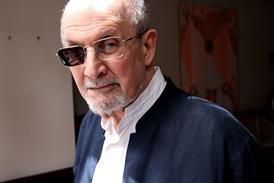Barry Diller spent a whole year trying to persuade Michael Jackson to quit Channel 4 before finally succeeding yesterday in luring the British TV boss across the Atlantic to run his cable channels, TV production arm and USA Films from both New York and Los Angeles.
After entering serious talks about six weeks ago, the 43-year-old Jackson finally relented and agreed to become the president and chief executive officer of USA Entertainment Group at an unspecified date. His newly-created post means he will oversee Diller's various networks as well as the mini-studio currently run by Scott Greenstein and responsible for co-financing and releasing films such as Steven Soderbergh's Traffic (based, as it happens, on a Channel 4 mini-series). The parent operation, USA Networks, is 43% owned by Vivendi Universal.
Jackson's sudden decision to quit as chief executive of Channel 4 after four years in the job and report directly to Diller will be an unsettling blow to FilmFour, the influential UK film operation which he has continued to champion even in the face of losses and the added scrutiny of being folded this February into the commercial wing known as 4 Ventures.
Under Jackson, Channel 4 consolidated all its film activities into the current stand-alone operation run by Paul Webster and launched the UK pay-TV movie channel FilmFour.
This year, FilmFour produced its most expensive film to date, Charlotte Gray, as well as moving firmly into US production with projects such as Death To Smoochy. Another of FilmFour's co-productions, Buffalo Soldiers, is being sold internationally through Good Machine International, the New York film sales operation that also handles product for USA Films.
"Michael has never lost sight of what really drives and defines Channel 4 - its programming," said Vanni Treves, Channel 4 chairman. "As the creative head of the channel he has invigorated the core channel's schedule and presided over a period of unprecedented success."
Jackson added: "My next challenge at USA Entertainment is to lead a major group of media assets, marrying both mass and specialist interests, and I am excited by the prospect of operating in an entirely new market."
In doing so, Jackson will be following in the footsteps of both Michael Grade and David Puttnam, two well-established figures within the British entertainment community who were similarly seduced by the prospects of running being a major decision-maker in Hollywood. This time around, Jackson will hope his stay will be rather more successful - and enduring.



















No comments yet